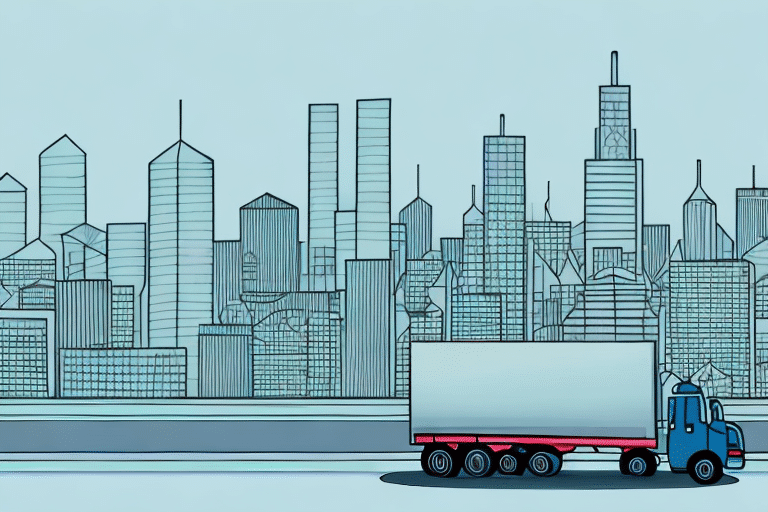Overview of the Logistics Industry
The logistics industry remains a cornerstone of the global economy, facilitating the efficient movement of goods and services across the world. In 2023, the sector continues to experience robust growth, driven by advancements in technology and the persistent rise of e-commerce. According to a Global Logistics Report 2023, the industry is projected to grow at an annual rate of 7.5%, reaching a market size of over $12 trillion by the end of the year.
E-commerce has significantly reshaped the logistics landscape, necessitating faster delivery times and more flexible supply chain solutions. The demand for last-mile delivery services has surged, pushing logistics companies to innovate and optimize their operations to meet consumer expectations.
Impact of COVID-19 on Logistics
The COVID-19 pandemic has had a profound and lasting impact on the logistics sector. While the industry demonstrated remarkable resilience, it also faced unprecedented challenges that have reshaped its operational dynamics.
Supply Chain Disruptions
The pandemic caused widespread disruptions in global supply chains, leading to delays, shortages, and increased costs. Factory shutdowns and port congestions were rampant in 2020 and 2021, effects that have lingered into 2023. A McKinsey & Company report highlights that companies are now prioritizing supply chain resilience, diversifying their supplier base, and increasing inventory buffers to mitigate future disruptions.
Manpower Shortages and Automation
The pandemic led to significant workforce shortages due to illness, quarantine measures, and shifting labor market dynamics. To address these challenges, logistics companies have accelerated the adoption of automation and robotics. Technologies such as automated guided vehicles (AGVs) and warehouse robotics have become essential in maintaining operational continuity.
Technological Innovations in Logistics
Technological advancements continue to transform the logistics industry, enhancing efficiency, accuracy, and sustainability. Innovations in automation, artificial intelligence (AI), and data analytics are at the forefront of this transformation.
Automation and Robotics
Automation solutions, including robotic process automation (RPA) and autonomous vehicles, are revolutionizing logistics operations. These technologies reduce the reliance on manual labor, minimize errors, and increase processing speeds. For instance, Amazon's deployment of warehouse robots has significantly improved order fulfillment rates and operational efficiency.
Data Analytics and Predictive Modeling
Data analytics enables logistics companies to gain actionable insights from vast amounts of data. Predictive modeling helps in forecasting demand, optimizing routes, and enhancing inventory management. According to a Gartner report, 97% of companies are expected to use AI to analyze internal and external data for improved decision-making by 2025.
Sustainability in the Logistics Industry
Sustainability has become a critical focus for the logistics sector, driven by regulatory pressures and increasing consumer demand for eco-friendly practices. Companies are implementing various initiatives to reduce their environmental footprint.
Electric Vehicles and Alternative Fuels
The adoption of electric vehicles (EVs) and alternative fuels is gaining momentum in the logistics industry. Companies like DHL and UPS are investing heavily in EV fleets to reduce greenhouse gas emissions. According to the International Energy Agency, the number of electric trucks is expected to surpass 1 million globally by 2025.
Smart Routing and Sustainable Packaging
Smart routing technologies optimize delivery paths to minimize fuel consumption and reduce emissions. Additionally, sustainable packaging solutions, such as recyclable materials and minimalistic designs, are being adopted to decrease waste. These measures not only benefit the environment but also result in cost savings and enhanced brand reputation.
Future Trends in E-Commerce and Logistics
The e-commerce boom continues to drive innovation and demand within the logistics sector. Future trends are set to further transform how goods are delivered and managed.
Advancements in Last-Mile Delivery
Last-mile delivery remains a critical area of focus, with companies exploring innovative solutions like drone delivery and autonomous delivery vehicles. These technologies promise faster delivery times and reduced operational costs. For example, Amazon's drone delivery initiative aims to make same-day delivery a standard expectation.
Changing Consumer Preferences
Consumers increasingly demand flexibility and speed in delivery options, including contactless deliveries and real-time tracking. Logistics companies are leveraging AI and machine learning to anticipate consumer needs and personalize delivery experiences, ensuring higher satisfaction and loyalty.
Security Challenges and Solutions in Logistics
As the logistics industry becomes more technologically advanced, it faces a range of security challenges that require robust solutions to protect assets and data.
Physical Security Measures
To combat theft and unauthorized access, logistics providers are implementing advanced tracking technologies, such as GPS and RFID, as well as secure storage solutions like smart lockers. These measures enhance the security of goods in transit and storage.
Cybersecurity in Logistics
The digitalization of logistics operations has heightened the risk of cyber threats. Companies are investing in comprehensive cybersecurity strategies, including firewalls, encryption, and employee training programs, to safeguard sensitive information and maintain operational integrity. Collaborations with cybersecurity firms enable logistics companies to stay ahead of emerging threats and ensure resilience against cyber attacks.
Conclusion
The logistics industry is undergoing significant transformation, influenced by technological advancements, changing consumer behavior, and global challenges such as the COVID-19 pandemic. To remain competitive and sustainable, logistics companies must continue to innovate, prioritize sustainability, and implement robust security measures. Embracing these changes will ensure the logistics sector remains a vital component of the global economy, driving growth and facilitating seamless supply chain operations worldwide.






















